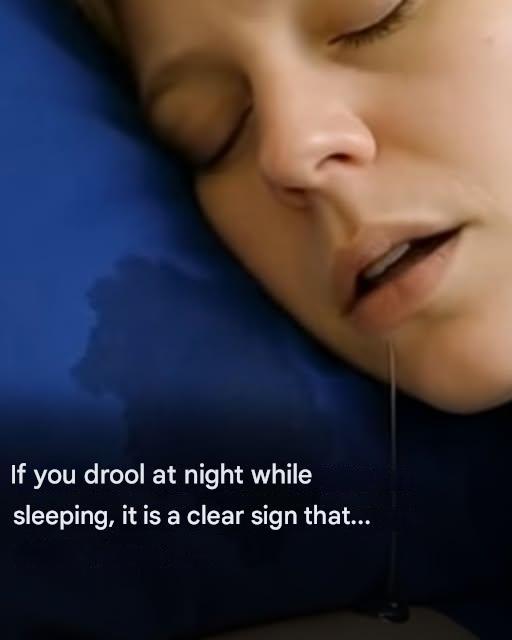🚨 Here’s what
your body might be trying to tell you: 1. 😮 You’re breathing through your mouth (not your nose)
Mouth breathing at night is one of the leading causes of drooling.
It can be caused by:
Stuffy nose
Nasal septum deviation
Chronic sinusitis
👉 If you sleep with your mouth open, saliva doesn’t stay inside.
2. 😷 You have allergies or a cold
A stuffy nose can force you to breathe through your mouth and increase your risk of drooling.
It can also be a sign of respiratory irritation.
3. 🧠 You sleep deeply (and are very relaxed)
The body produces more saliva, and the muscles in your mouth relax.
The result? Saliva flows naturally, especially when you stand on your side.
👉 Nothing serious, but if it happens too often, you should watch for other symptoms.
4. Problems with teeth 🦷 or bite
Improper jaw positioning, orthodontic braces, and even bruxism (teeth grinding) can interfere with mouth closure.
This causes drooling while sleeping.
5. 💊 Side effects of medications
Some treatments can increase saliva production:
Anti-anxiety medications
Neurological treatment
Antidepressants
🛑 If in doubt, consult your doctor.
6. 🧬 Neurological problem (in rare cases)
Excessive and continuous drooling may in rare cases be associated with:
Parkinson’s disease
Nerve damage
Neuromuscular diseases
🧠 This is not a common occurrence, but if drooling is accompanied by problems with speaking or movement, you should see a doctor.
✅ What to do if you drool a lot at night?
🛌 Adoption of a position on the dossier
limite l’écoulement par la bouche.
🌬️ Traitez la cause
nasal spray, humidifier, ORL consultation.
🦷 Consult your dentist
to check your bite and the effectiveness of your orthodontic appliance.
💧 Stay hydrated during the day.
Dry mouth causes increased saliva production at night.
🧑⚕️ Seek medical advice
if drooling is new, excessive, or accompanied by other symptoms.
